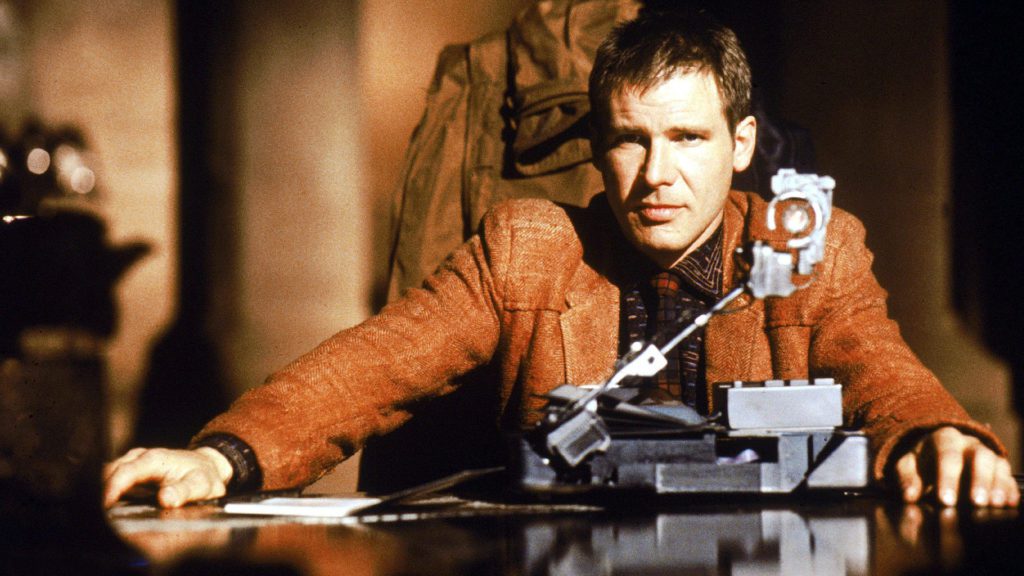I wasn’t going to write about Star Wars.
It’s not that I didn’t want to. Like most American humans born after 1965 or so, Star Wars played a major role in my formative years, and the sudden appearance of an Episode VII (which still sounds so weird!) has flooded me with emotions, opinions, and analyses. As a fan, I’m still wrapping my head around how the new “shared universe” model affects the previously tidy canon, and as a critic, I’m forced to juggle the film’s admitted unoriginality against my own pure, stupid enjoyment. But, if the internet is any indication, every other person on earth is dealing with these same feelings – and they’re writing about it. If print weren’t a dying medium, our national fixation on Kylo Ren’s crossguard and who Rey’s parents are would be obliterating the rainforests; as it is, roughly 85% of our newsfeeds currently consist of notifications of where our friends are seeing The Force Awakens for the third time. So I set a self-imposed moratorium: no Star Wars piece.
Ah, but this is a Blade Runner piece, and, consciously or not, Blade Runner has always served as a handy counterpoint to Star Wars fever. Released right between Empire Strikes Back and Return of the Jedi, Ridley Scott’s cyberpunk masterpiece plunged the Original Trilogy’s iconic leading man into a universe just as fully realized, but dramatically darker. The classical Kurosawa influence that informed George Lucas is overridden by the noir stylings of Jules Dassin, and the Campbellian “Hero’s Journey” replaced by ambiguous morality and unanswered questions. Gone is the mannered villainy of Peter Cushing and James Earl Jones, in favor of the unhinged madness of Rutger Hauer and Daryl Hannah. And where Star Wars served as a perpetual generator of merchandising opportunities, Blade Runner satirized commercialism with enormous holographic billboards for Coke and Atari.
The most curious parallel, however, is the seemingly unending series of revisions both films have undergone in the decades since their initial release. In 1997, George Lucas famously released the “Special Editions” of his original trilogy, awash with new additions which supposedly brought the films closer to Lucas’ original vision. Objectively speaking, some of these changes are, in fact, for the better (I would cite the Wampa scene in Empire, which was visibly rushed and sloppy in its original form), while others, such as the screensaver-y CGI Jabba in the first film, deserve all the scorn they have received. But what many don’t realize is that the Special Editions were not the end of it: Lucas continued to tinker with his films for every subsequent release, right up to the moment he sold the farm in 2012. What initially seemed like a nifty, pre-DVD method of preserving lost footage quickly began to look like the manifestation of one man’s deep-seated psychological issues – compounded by Lucas’ refusal to release the original cuts in all but the most perfunctory manner.
Scott, too, has revisited his opus numerous times. But where Lucas’ re-edits border on the pathological, each of Scott’s serves a clear, methodical purpose. The first, 1993’s much-ballyhooed “Director’s Cut,” was Scott’s chance to strip away some of the more egregious examples of studio interference, most notably the “happy” ending and the notoriously half-assed voiceover narration. In 2007, Scott returned again for the “Final Cut” (screening tonight at the Brattle as part of their Neo-Noir series). This time, Scott’s objective was simply to fix mistakes, such as wobbly effects and continuity errors (in the most outlandish example, Scott filmed Harrison Ford’s son reading a line of dialog, then digitally superimposed his mouth onto his father’s face, just to fix some faulty ADR!). And unlike Star Wars, the many iterations of Blade Runner have been made available to a nearly obsessive degree: in addition to these three versions, the 2008 “Ultimate Edition” box set includes the longer and bloodier international theatrical cut, and the oft-bootlegged workprint. Also a toy car and a plastic unicorn.
So here we are. It is the year 2016 (the exact date of Roy Batty’s activation, in fact). Tonight, you, as a moviegoer, have a choice between joining the masses to see the latest entry in the Star Wars saga, or joining the cognoscenti for a screening of Blade Runner. If all this seems familiar, ask yourself: are your memories real? You’re in the desert, and you see a tortoise…
Blade Runner: The Final Cut
1982
dir. Ridley Scott
117 min.
Part of the ongoing series: Sex & Death & Venetian Blinds: Neo-Noir of the 1980s and ‘90s
Click here for showtimes and ticket info


